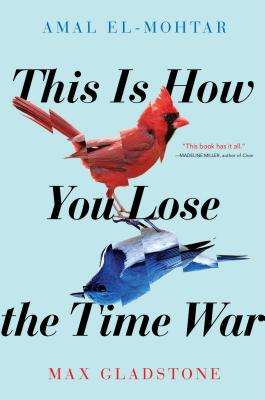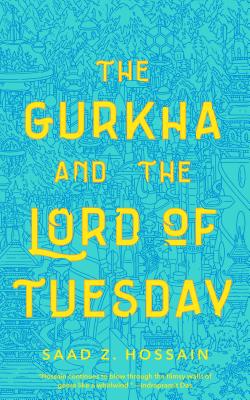The Future Alternative Past: The smell of a world that has burned
Every month, Nisi Shawl presents us with news and updates from her perch overlooking the world of science-fiction, fantasy, and horror. You can also look through the archives of the column.
Jimi Hendrix sang us the truth over fifty years ago in “Up from the Skies,” one of his many SF songs. This world is burning. Just ask California. Burning. Deny it all you want, or all our corporate would-be masters want, but science says the planet’s climate has changed, warming suddenly and significantly due to industrial activity. Long a plot device driving fictional futures imagining extraterrestrial colonization, ecological crises are real, here, now.
Admitting that takes a certain audacity. It’s a species of boldness Octavia E. Butler displayed in her Earthseed books--especially the first, Parable of the Sower. In Sower, members of a vanishing middle class hunker behind the walls of gated communities, increasingly the prey of roaming homeless have-nots, eventually heading northward to escape heat and drought. When Butler wrote the books in the 1990s they were set in the near future of the 21st century’s early decades. Our present.
What’s next? Much of the SFFH I most admire is about moving on from the status quo. In Kim Stanley Robinson’s 2017 novel New York 2140, NYC is flooded but not abandoned. Like Venice, its buildings’ upper stories are inhabited, and water transport is the norm. The city’s inundation is shown to have positive points for the wealthy, as when eating certain types of seafood conveys higher status. The art scene, of course, is located in its damp and dangerous lower stories. And yet, despite depicting literal and blatant stratification of this kind, Robinson supposes ways for his wide spectrum of characters to get the best of capitalist oppression.
In Autonomous, by Annalee Newitz, humanity adapts worldwide to the new geography of global climate change. Submarines and reclaimed tundra make corporate expansion into formerly frozen wastelands profitable. Likewise, Tobias Buckell’s Arctic Rising showcases the potential for exploiting oil deposits uncovered by melting polar ice. Buckell also raises the possibility of remediating the mess climate change is making of his not-too-far-distant future, though said possibility is fraught with danger.
Hopeful takes on the outcome of current ecological trends are now viewed as a SFFH subgenre. It’s called solarpunk. The first solarpunk anthology, Solarpunk: Histórias ecológicas e fantásticas em um mundo sustentável was published in Brazil in 2012, and in an English translation in the US in 2018. The 2017 solarpunk anthology Sunvault collects work by me, Daniel José Older, Kristin Ong Muslim, and other up and coming authors. There’s a pertinent Australian anthology as well: Ecopunk!: Speculative Tales of Radical Futures.
Of course people talk about solarpunk novels, too; some of that talk is meant to repurpose books that predate the literary classification solarpunk, including titles I’ve named here, such as Sower and Arctic Rising. Some of it is commentary on more recent works consciously identifying as solarpunk. And some of it’s about bias against the category.
A couple of decades ago I worked as a slush reader for the Science Fiction Book Club. One of my contacts at Baen Books told me their company had a secret policy against publishing books in which climate change was a given. They swore up and down that though Baen would deny it publicly, any manuscript which treated global warming as a scientifically proven theory was summarily rejected. While Baen has a lot of good things going for it — such as a free online library stocked with dozens of books — it’s not doing much to support solarpunk. Then again, neither are any of the other major publishing houses, despite that wistful quotation about capitalists selling us the rope to hang them with. Time to braid our own and tie it into optimistic nooses.
Recent books recently read

This Is How You Lose the Time War (Saga Press) by Amal El-Mohtar and Max Gladstone is many things at once: a romance, a time-travel adventure, a spy thriller, a paean to the dying art of letter writing. The authors’ winged prose perfectly captures the exhilarating giddiness of loving and being loved, as Red and Blue, agents working for rival empires, hide honeyed messages for each other in the ashes of their warring operations. Tenderness, danger, daring, wit — Time War has them all. Plus birds, berries, seals, skeletons, and extracts from Mrs. Leavitt’s Guide to Etiquette and Correspondence, a volume sadly nonexistent — in this universe at least. In other words, these pages are strewn with myriad delights.

Just as wonderfully, renowned Bangladeshi author Saad Z Hossain’s The Gurkha and the Lord of Tuesday gleefully mashes up fantasy and science fiction in a way I’m coming to expect from cultures outside the genre’s historical borders. When melting glaciers free a cranky djinn, he teams up with a lone-wolf soldier to trouble the too-calm tenor of a Kathmandu both post-apocalyptic and techno-Utopian. The djinn, the titular Lord of Tuesday, wants to party really, really hardy. As in, to the destruction of automated bars and the depletion of months’ worth of alcohol stocks. Ostensibly the soldier (aka the Gurkha) wants to help the djinn accomplish that mission, but he also has his own agenda involving an investigation of the supposedly incorruptible AI keeping score of inhabitants’ “karma” points. Relating the pair’s exploits with charmingly brisk humor, Hossain depicts inevitable human weaknesses mingling with surprising human strengths, then blends the resultant melange with his other sfnal ingredients — believable new weapons, perpetually resuscitated desires, catastrophic loss of breathable atmosphere, and more — to achieve a refreshing vision of a future beyond labels.
An upcoming con
I’m only going to talk about one con this column: Arisia. The year’s earliest of the two big Boston-area SFFH conventions, Arisia aims to be its regions most inclusive as well. A look at their website’s write-ups about 2020’s Guests of Honor affirms their success. There’s Arthur Chu, anti-Gamergate activist and Asian-American commentator on fandom’s racial divides; Kristina Carroll, initiator of the Month of Love and Month of Fear challenges, which have reached out to numerous artists and inspired amazing new work; and Cadwell Turnbull, a rising star of an author whose acclaimed first novel, The Lesson, is set in his native US Virgin Islands. Support coolness! Join! Attend!